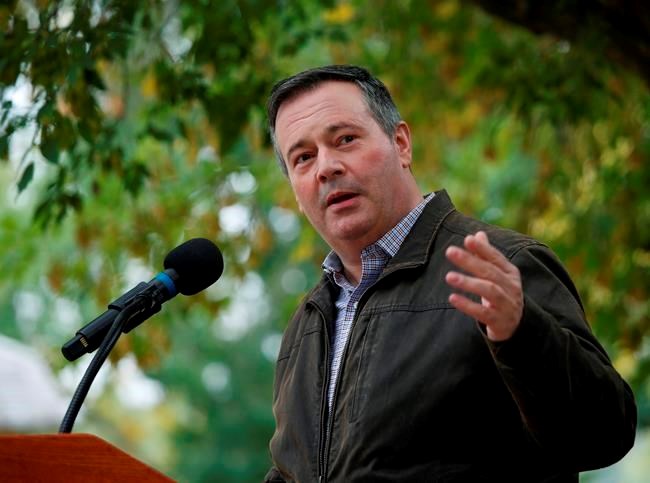EDMONTON — Alberta isn't currently looking at varying economic restrictions based on regions, says Premier Jason Kenney, despite growing pressure to do it.
Critics, including United Conservative caucus member Drew Barnes, are urging Kenney to consider changing the rules in areas of the province where there are few cases of COVID-19.
Kenney said they did so for a while last year when case counts were low, but rates became so high during the second wave that regional variances wouldn’t be effective.
"Our threshold to go to a regional approach is to have 50 cases or fewer per 100,000 people in a health zone," the premier said Thursday.
"The closest we get to that (right now) would be in the south zone at just over 100 cases per 100,000."
Kenney also noted that rates are rising of late in rural regions while falling in Edmonton and Calgary.
He said he understands the frustration with economic restrictions, but the goal is to keep COVID-19 cases from overwhelming the health system.
"People may live in communities, perhaps some rural communities, where there are no cases," he said.
"Folks need to understand that transmission can happen very fast, and we have to look at the broader trends, yes in the regions, but also the whole province."
Dr. Deena Hinshaw, the province's chief medical officer of health, said during her COVID-19 briefing Thursday that towns and cities are interconnected.
"We know that Albertans travel from home to work, sometimes across long distances. We know that people shop in nearby cities even if they live in small towns" she said. "And we know that level of interconnectedness causes rapid spread of the virus."
Hinshaw also reported 352 new cases of COVID-19 and 16 more deaths from the virus.
Alberta has 5,501 active cases, with 397 people in hospital, including 71 in intensive care.
A total of 156 cases of the more contagious COVID-19 variants have been confirmed in the province. There are 149 cases of the variant first identified in the United Kingdom and seven of the variant first identified in South Africa.
Hinshaw said the province will be suspending the Calgary airport's COVID-19 testing pilot program as new federal travel restrictions come into effect.
The pilot project, which started in November, is a voluntary program for international travellers at the Calgary International Airport and Coutts land border crossing in southern Alberta. It allows people to leave the 14-day quarantine early with a negative COVID-19 test. They also must agree to follow strict protocols and to complete test a week after arrival.
Under the new rules from Ottawa, all air travellers arriving from outside Canada must have a negative COVID-19 test upon entry and quarantine for 14 days at a designated hotel.
Hinshaw said because of the pilot project, "Alberta's labs are well-positioned to support this new federal requirement."
The pilot project at the Coutts crossing will not be suspended, she added.
But, starting Monday, travellers arriving at land border crossings must show proof of a negative PCR test completed in the United States within the previous 72 hours, Hinshaw said.
"The border pilot will continue at the Coutts border entry until a decision is made by the federal government on whether additional restrictions are needed at land border crossings."
This report by The Canadian Press was first published Feb. 11, 2021.
Dean Bennett and Daniela Germano, The Canadian Press



